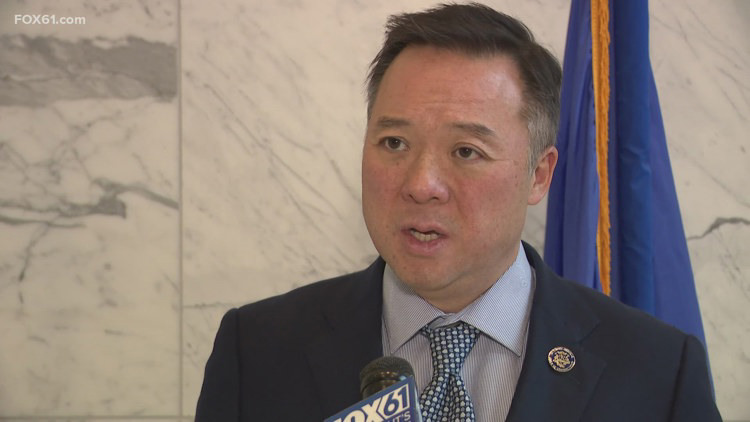Navigating A Suspected Adult ADHD Diagnosis

Table of Contents
Recognizing the Signs of Adult ADHD
Many adults with ADHD go undiagnosed for years, often attributing their struggles to personal shortcomings. However, recognizing the common symptoms is crucial for seeking help. Adult ADHD symptoms often manifest differently than in children. They might be less about hyperactivity and more about internal struggles with focus and organization.
- Difficulty focusing on tasks: Sustained attention is a significant challenge, leading to frequent task switching and unfinished projects.
- Problems with organization: This includes challenges with paperwork, belongings, and daily schedules, often leading to disorganization and missed deadlines.
- Impulsivity leading to poor decisions: Acting without thinking, making hasty decisions with negative consequences, and difficulty controlling urges are common.
- Restlessness and fidgeting: While not always hyperactivity in the classic sense, adults might experience internal restlessness, difficulty sitting still, and a constant need to be doing something.
- Trouble managing emotions: Emotional regulation can be difficult, leading to irritability, frustration, and mood swings.
- Challenges with time management: Chronic lateness, missed appointments, and difficulty prioritizing tasks are common struggles.
For further information and resources on recognizing ADHD symptoms, visit the CHADD website:
Differentiating ADHD from other conditions
It's important to remember that many conditions share overlapping symptoms with ADHD. Anxiety, depression, and learning disabilities can all present with difficulties in concentration, organization, and emotional regulation. This is why a professional diagnosis is crucial. A comprehensive assessment will help differentiate between these conditions and provide an accurate diagnosis of Adult ADHD.
Seeking Professional Help for Adult ADHD Diagnosis
Getting an accurate Adult ADHD diagnosis requires seeking help from a qualified professional. This is not a self-diagnosis; professional assessment is vital.
- Find a qualified professional: A psychiatrist, psychologist, or neuropsychologist specializing in ADHD is ideal.
- Questions to ask potential professionals: Inquire about their experience diagnosing and treating adults with ADHD, their assessment methods, and their treatment philosophy.
- Obtaining a referral: Your primary care physician can often provide a referral, or you can search online directories for specialists in your area.
Different assessment methods are employed:
- Questionnaires: Standardized questionnaires assess symptoms and their impact on daily life.
- Interviews: A detailed interview helps gather information about your personal history, symptom onset, and current challenges.
- Neuropsychological testing: This more in-depth testing can assess cognitive functions and rule out other conditions.
Preparing for your assessment
Gathering information before your assessment is crucial. Keep a detailed log of your symptoms, their frequency, and their impact on your daily life. Be honest and thorough in your responses during the assessment process. The more information you provide, the more accurate your diagnosis will be.
Understanding the Adult ADHD Diagnosis and Treatment Options
Once diagnosed, you'll likely learn which presentation of ADHD you have:
- Predominantly Inattentive Presentation: Characterized primarily by difficulties with focus, organization, and attention to detail.
- Predominantly Hyperactive-Impulsive Presentation: Characterized primarily by restlessness, impulsivity, and difficulty controlling behavior.
- Combined Presentation: A combination of inattentive and hyperactive-impulsive symptoms.
Treatment for Adult ADHD usually involves a combination of approaches:
- Medication: Stimulant medications (like methylphenidate or amphetamine) and non-stimulant medications (like atomoxetine) are often prescribed to manage symptoms.
- Therapy: Cognitive Behavioral Therapy (CBT) and behavioral therapy can teach coping mechanisms and strategies for managing symptoms.
Lifestyle changes to support ADHD management
In addition to medication and therapy, lifestyle adjustments can significantly impact symptom management:
- Diet: A balanced diet can improve focus and energy levels.
- Exercise: Regular physical activity can reduce restlessness and improve mood.
- Sleep hygiene: Prioritizing sufficient sleep is crucial for managing symptoms.
- Stress management: Techniques like mindfulness and meditation can help reduce stress and improve emotional regulation.
Coping Strategies and Support for Living with Adult ADHD
Living with Adult ADHD requires developing effective coping strategies and building a support system.
- Time management techniques: Utilize tools like planners, calendars, and time-blocking techniques.
- Organizational tools: Implement systems for organizing paperwork, belongings, and digital files.
- Strategies for improving focus and concentration: Practice mindfulness, break down tasks into smaller steps, and minimize distractions.
- Mindfulness techniques: Practice mindfulness meditation to improve focus and emotional regulation.
Resources and further support
Several organizations offer support and resources for adults with ADHD:
- CHADD (Children and Adults with Attention-Deficit/Hyperactivity Disorder):
- ADDitude Magazine:
Successfully navigating a suspected Adult ADHD diagnosis requires proactive steps. From recognizing the subtle signs of Adult ADHD to seeking professional help and exploring treatment options, this journey demands patience and understanding. Remember that seeking a diagnosis is a positive step towards managing your symptoms and improving your quality of life. Don't delay – take control of your well-being and begin exploring the possibility of an Adult ADHD diagnosis today. Contact a qualified professional to start your journey towards better management of Adult ADHD.

Featured Posts
-
 Former Norfolk State Star Diamond Johnson Invited To Minnesota Lynx Training Camp
Apr 29, 2025
Former Norfolk State Star Diamond Johnson Invited To Minnesota Lynx Training Camp
Apr 29, 2025 -
 Top Universities Unite A Private Collective Against Trump Administration Actions
Apr 29, 2025
Top Universities Unite A Private Collective Against Trump Administration Actions
Apr 29, 2025 -
 Nyt Strands Hints And Answers Monday March 31 Game 393
Apr 29, 2025
Nyt Strands Hints And Answers Monday March 31 Game 393
Apr 29, 2025 -
 Porsche 911 W Polsce 1 33 Mln Zl Cena Hitu Sprzedazy
Apr 29, 2025
Porsche 911 W Polsce 1 33 Mln Zl Cena Hitu Sprzedazy
Apr 29, 2025 -
 Mark Zuckerbergs Facebook In The Age Of Trump
Apr 29, 2025
Mark Zuckerbergs Facebook In The Age Of Trump
Apr 29, 2025
Latest Posts
-
 Tragediya Na Gorke V Tyumeni Postradavshie Otkazyvayutsya Ot Pomoschi
Apr 30, 2025
Tragediya Na Gorke V Tyumeni Postradavshie Otkazyvayutsya Ot Pomoschi
Apr 30, 2025 -
 V Chelyabinske Anomalnoe Poteplenie I Zakrytye Gorki
Apr 30, 2025
V Chelyabinske Anomalnoe Poteplenie I Zakrytye Gorki
Apr 30, 2025 -
 Obrushenie Gorki V Tyumeni Detali Intsidenta I Reaktsiya Postradavshikh
Apr 30, 2025
Obrushenie Gorki V Tyumeni Detali Intsidenta I Reaktsiya Postradavshikh
Apr 30, 2025 -
 Poteplenie V Chelyabinske Gornolyzhnye Kurorty Priostanovili Rabotu
Apr 30, 2025
Poteplenie V Chelyabinske Gornolyzhnye Kurorty Priostanovili Rabotu
Apr 30, 2025 -
 Tyumen Posledstviya Obrusheniya Gorki I Otkaz Postradavshikh Ot Pomoschi
Apr 30, 2025
Tyumen Posledstviya Obrusheniya Gorki I Otkaz Postradavshikh Ot Pomoschi
Apr 30, 2025
